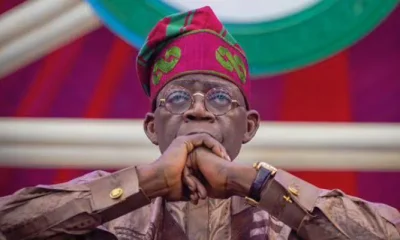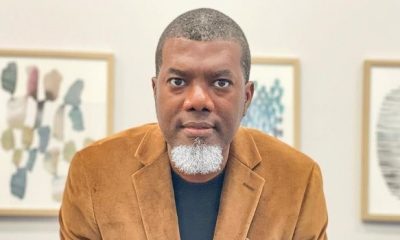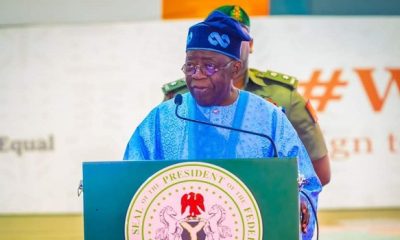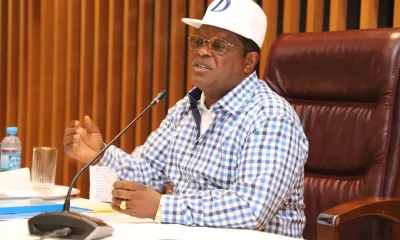POLITICS
UNGA79: Tinubu Demands Permanent UN Security Council Seat for Nigeria

President Bola Tinubu has called on global leaders to strengthen multilateralism and expand inclusivity within the United Nations (UN), advocating for permanent seats on the UN Security Council for Nigeria and other African nations.
During the General Debate of the 79th UN General Assembly (UNGA) in New York, Tinubu, represented by Vice President Kashim Shettima, noted that some permanent Security Council members have shown tentative support for reforming the council. He welcomed this shift but urged a faster pace to ensure the Security Council’s structure reflects the world’s diversity.
“The Security Council should be expanded in both permanent and non-permanent categories to reflect global diversity. We support Secretary-General Antonio Guterres’ efforts in this regard,” Tinubu said. He emphasized that Africa deserves permanent representation with equal rights and responsibilities.
Tinubu praised the indications of support for reform but urged accelerated efforts to strengthen the UN’s relevance in addressing global challenges. He also stressed collective action on crises such as terrorism, climate change, poverty, and economic instability, criticizing nationalism and unilateralism for undermining global solutions.
He warned that prioritizing national interests over collective global goals threatens the UN’s core principles of peace, sustainable development, and human rights. “The pillars of our organization are at risk as individual priorities overshadow the collective needs of the nations assembled here today,” he said.
Tinubu highlighted unresolved issues from previous years, including terrorism, inequality, poverty, human rights abuses, and climate change. He criticized the billions spent on conflicts with minimal success, reflecting the failure of global systems.
Addressing the rise of military coups in Africa, Tinubu linked them to economic underdevelopment, warning that democracy becomes fragile without economic growth and stability. He called for stronger democratic institutions supported by economic growth, education, healthcare, and employment opportunities.
On global economic inequality, Tinubu urged reforms in the international financial system to better serve developing nations. He advocated for debt relief, noting that the Global South cannot achieve progress without comprehensive debt reforms.
Tinubu also called for a fairer multilateral trading system and stronger international cooperation to recover illicit financial flows and stolen assets from developing countries. He emphasized the urgent need to address climate change, which he described as a major driver of insecurity, citing recent floods in Nigeria as an example.
Tinubu urged world leaders to fulfill their commitments from previous climate summits, warning of the dire consequences of inaction. On security, he reiterated that terrorism and extremism remain global threats, pointing to Nigeria’s counterterrorism efforts and the “Abuja Declaration” from the April 2024 High-Level African Counter-Terrorism Meeting.
He concluded by stressing the interconnectedness of climate change, security, and economic inequality, warning that failure to address these issues would lead to further global instability and suffering.


















You must be logged in to post a comment Login